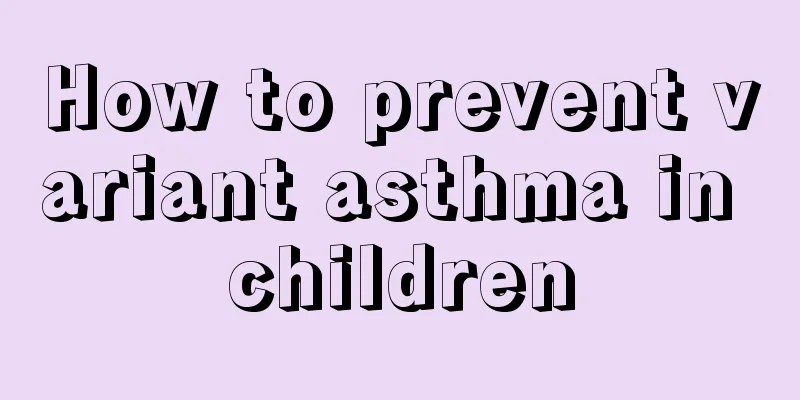18-month-old baby's intellectual development

|
During the baby's growth and development process, different babies develop to different degrees. Some develop slowly, some develop quickly. Parents should pay special attention to intelligence, as intellectual and physical development are closely related to living environment and absorbed nutrition. When we raise our children, we should observe more, give encouragement and support, and guide the baby's healthy growth. 1. Growth indicators of 18-month-old babies Boys weigh 8.13-15.75kg and are 73.6-92.4cm long; The girls weigh 7.79-14.90kg and are 72.8-91.0cm tall. Note: The above data is compiled based on the Ministry of Health's "Reference Standards for Growth and Development of Children Under 7 Years Old in China". 18-month-old baby's language ability Basically, they can master 50-100 words, and 50% of babies can master 60-80 spoken words. Be able to use two-word sentences flexibly and start using three-word sentences. In addition, babies can also imitate adults' speech, for example: adults say: "Wash your hands, it's time to eat!" The baby will imitate and say "It's time to eat" and so on. Detailed explanation of the developmental indicators of 18-month-old babies 1. Teeth: Most babies grow 12 primary teeth. 2. Movement: Able to walk forward freely, or even run a few steps. Likes to imitate adults' actions. Likes to gather things together, often taking many things at once. 3. Hearing: When talking to parents or other children around him, the baby will raise his head, stare at the speaker's mouth, and listen with great interest. 4. Social adaptation: The baby begins to use language to greet people around him; when the baby encounters difficulties, he can seek help from adults. 5. Exploration and operation: Be able to use a small rope to pull a doll or toy car back and forth. Nutritional advice for 18-month-old baby development 1. Food should be nutritious and easy to digest. Do not let children eat overly sweet, sour or spicy food, as it can easily cause loss of appetite and indigestion. Food should be cooked softer, and the original "minced, souped, pureed" can be changed to "diced, chunked, shredded". Do not eat foods that you should not eat, such as irritating foods and whole dried fruits (such as peanuts, melon seeds, walnuts, dried beans, etc.). 2. Babies between 1 and 1.5 years old are in the period of intellectual development. If you let your baby eat deep-sea fish (such as mackerel, salmon, and trout, etc.) regularly, they will naturally not lack intellectual factors. 3. Eggs cannot replace staple food after one year old. Some parents feed their babies eggs at almost every meal in order to make their babies grow stronger. This is very unscientific. Excessive intake of eggs will increase the burden on the baby's gastrointestinal tract, and in severe cases it will cause indigestion diarrhea in the baby. |
<<: 5-year-old baby's intellectual development
>>: Characteristics of boy's development
Recommend
What to do if your child has swollen abdominal lymph nodes
The health of children has always been a matter o...
How to treat children's cough quickly?
Children's cough is generally caused by low i...
How to treat dampness and toxins in children? Do you understand these methods?
There are many treatment methods for children wit...
What to do if your baby has diarrhea due to bacterial infection
Many people suffer from diarrhea. A common cause ...
How to perform cardiac compression in children
Cardiac compression is something that every one o...
How to treat ascites in children
Pleural effusion is a very serious disease. This ...
What can’t babies with anemia eat? These foods should be avoided
There are many foods in life that children can ea...
What disease causes small red pimples on baby’s cheeks?
The baby's little face is very soft and feels...
What to put in a newborn baby pillow
There are many things to pay attention to when a ...
Is encephalitis in children easy to cure?
Many children may have wounds on their heads due ...
Which kind of egg yolk is better for baby food
There are many types of complementary foods for b...
Solution to zinc deficiency in four-year-old babies
Zinc deficiency in four-year-old babies has becom...
Why are there obvious blood vessels in my baby’s eyelids?
The skin of very young babies is very thin and de...
What are the precautions for children with broken arms?
Fractures in children are more serious because th...
Why is my child having trouble breathing?
Oxygen is the most important substance for human ...









